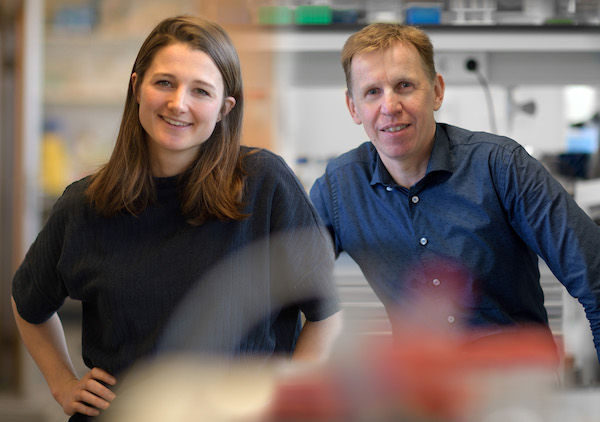Channels
Special Offers & Promotions
New Strategy to Tackle
Myeloid immune cells kill cancer cells by eating them but cancer cells prevent this from happening by giving out a 'do not eat me' signal.
Led by immunologists Ton Schumacher (Netherlands Cancer Institute and Oncode) and Ferenc Scheeren (Leiden University Medical Center), researchers from various research institutes have discovered a new method to inhibit the 'don’t eat me' signal, and have therefore found a new target for immunotherapy.
On 4 March 2019, the researchers published an article on this topic in the scientific journal Nature Medicine.
The “don’t eat me” signal
Different types of immune cells have different strategies to fight cancer cells. For example, some immune cells—myeloid cells—kill cancer cells by eating them. Cancer cells can prevent this by expressing proteins on their surfaces which give out inhibiting signals to the immune cells. One example is the 'don’t eat me' signal, officially called CD47, which ensures that the cancer cell stays alive.
Researchers around the world are now looking for medicines to block this “don’t eat me” signal.One method for doing so is to intervene on the surface of the cell, by covering the CD47 molecules on cancer cells with a specific antibody.
This method of blocking the CD47 signal from cancer cells is currently being clinically developed and is promising, but there are side effects, such as a decrease in red blood cells. On top of that, patients require a weekly IV to block the CD47 molecules on cancer cells adequately.
Are there any other ways to counteract the “don’t eat me” signal CD47? To investigate this, PhD student Meike Logtenberg, lead author of the article, set up a collaboration with experimental geneticist Thijn Brummelkamp, who uses a unique method to map the genetic regulation of any desired protein in a cell. "With this screening method you can potentially find new targets," says Meike Logtenberg.
Screening the CD47 molecule
Together with the immunologists, Brummelkamp screened CD47, which also plays a role in healthy cells as an immune system check, and found that the QPCTL enzyme is a crucial protein in forming the “don’t eat me” signal. QPCTL changes the structure of the CD47 protein and without any QPCTL activity, the CD47 molecules are no longer able to give off an inhibiting signal to myeloid cells.
Research leader Ton Schumacher: "In collaboration with the groups of Jeanette Leusen (UMC Utrecht) and Timo van den Berg (Sanquin Research), we then showed that as soon as we inhibited the activity of this enzyme, we instantly blocked the “don’t eat me” signal on tumor cells. Identifying this newtargetis especially relevant because the substances we can use to inhibit the QPCTL enzyme are likely to have some advantages over the strategies currently being clinically developed to inhibit the CD47 signal route."
Blocking the signal
With a QPCTL inhibitor, for example, it becomes easier to control how long you want to block the signal, and so-called small molecule inhibitors are easier to administer than antibodies. Moreover, the substance does not inhibit the CD47 molecules on the healthy red blood cells that a patient receives during a blood transfusion to fight anaemia.
Clinical studies
The researchers expect that QPCTL inhibitors will be available for testing in clinical studies in the coming years. First clinical trials are expected to take place in patients with blood cancer.
Media Partners



